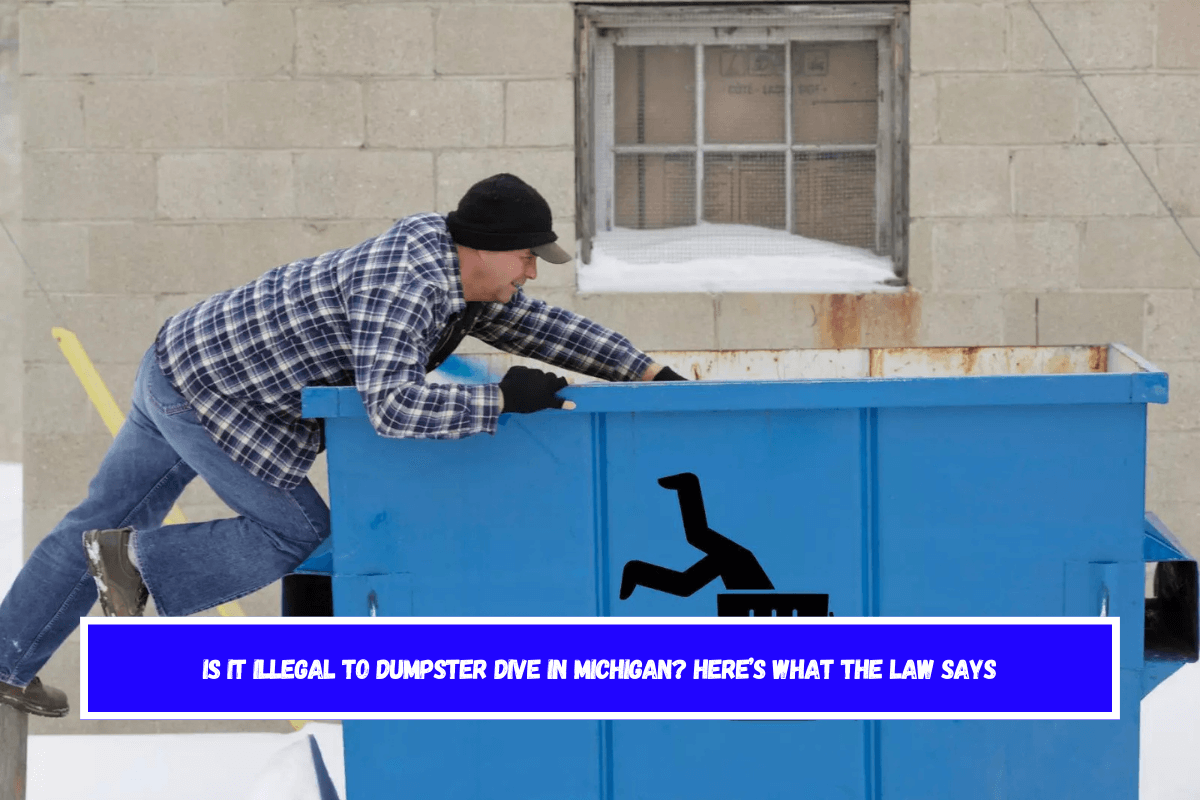Dumpster diving, the act of salvaging discarded items from waste containers, has gained popularity as a means of resourcefulness and sustainability. In Michigan, the legality of this practice is nuanced and varies based on location and circumstances.
Legal Status of Dumpster Diving in Michigan
Generally, dumpster diving is legal in Michigan, particularly when conducted on public property. The state does not have overarching laws prohibiting the act itself; however, several important considerations must be taken into account to avoid legal issues:
- Private Property: If a dumpster is located on private property, diving into it can lead to charges of trespassing or theft. This includes areas where “No Trespassing” signs are posted or where access is restricted by fences or gates.
- Local Ordinances: Various cities within Michigan have specific regulations regarding dumpster diving:
- Detroit: The city prohibits the collection or disturbance of trash from public areas without a license, which can result in fines up to $500.
- Warren: Similar restrictions exist, requiring individuals to obtain a junk peddler license for collecting items from curbsides.
- Ann Arbor: A local ordinance makes it illegal to gather solid waste or recyclables set out for collection by the city.
Important Considerations for Dumpster Divers
While dumpster diving may be legal under certain conditions, participants should be aware of the following guidelines to ensure compliance with local laws:
- Avoid Private Property: Always seek permission before entering private property. Trespassing can lead to misdemeanor charges, which may result in fines or jail time.
- Respect Local Laws: Check specific city ordinances before diving. Some municipalities have strict rules that can lead to penalties if violated.
- Nighttime Diving: Diving at night is legal as long as it adheres to trespassing laws and local ordinances. Many divers prefer this time for increased privacy.
Best Practices for Safe Dumpster Diving
To minimize risks while dumpster diving, consider these best practices:
- Research Locations: Identify public areas where dumpsters are commonly found, such as shopping centers, affluent neighborhoods, construction sites, and yard sales.
- Be Respectful: Leave the area clean and do not disturb the property surrounding the dumpster. This helps maintain good relationships with local businesses and residents.
- Safety First: Always prioritize personal safety by wearing gloves and being cautious of sharp objects or hazardous materials within dumpsters.
Conclusion
In summary, while dumpster diving is generally legal in Michigan when conducted on public property, divers must navigate local ordinances and respect private property rights to avoid legal repercussions. By understanding these regulations and adhering to best practices, individuals can engage in this sustainable practice responsibly.
Sources:
- https://witl.com/is-it-okay-to-dumpster-dive-in-michigan/
- https://mix957gr.com/can-you-dumpster-dive-in-michigan/
- https://mymagicgr.com/is-it-illegal-to-go-dumpster-diving-in-michigan/











Leave a Reply